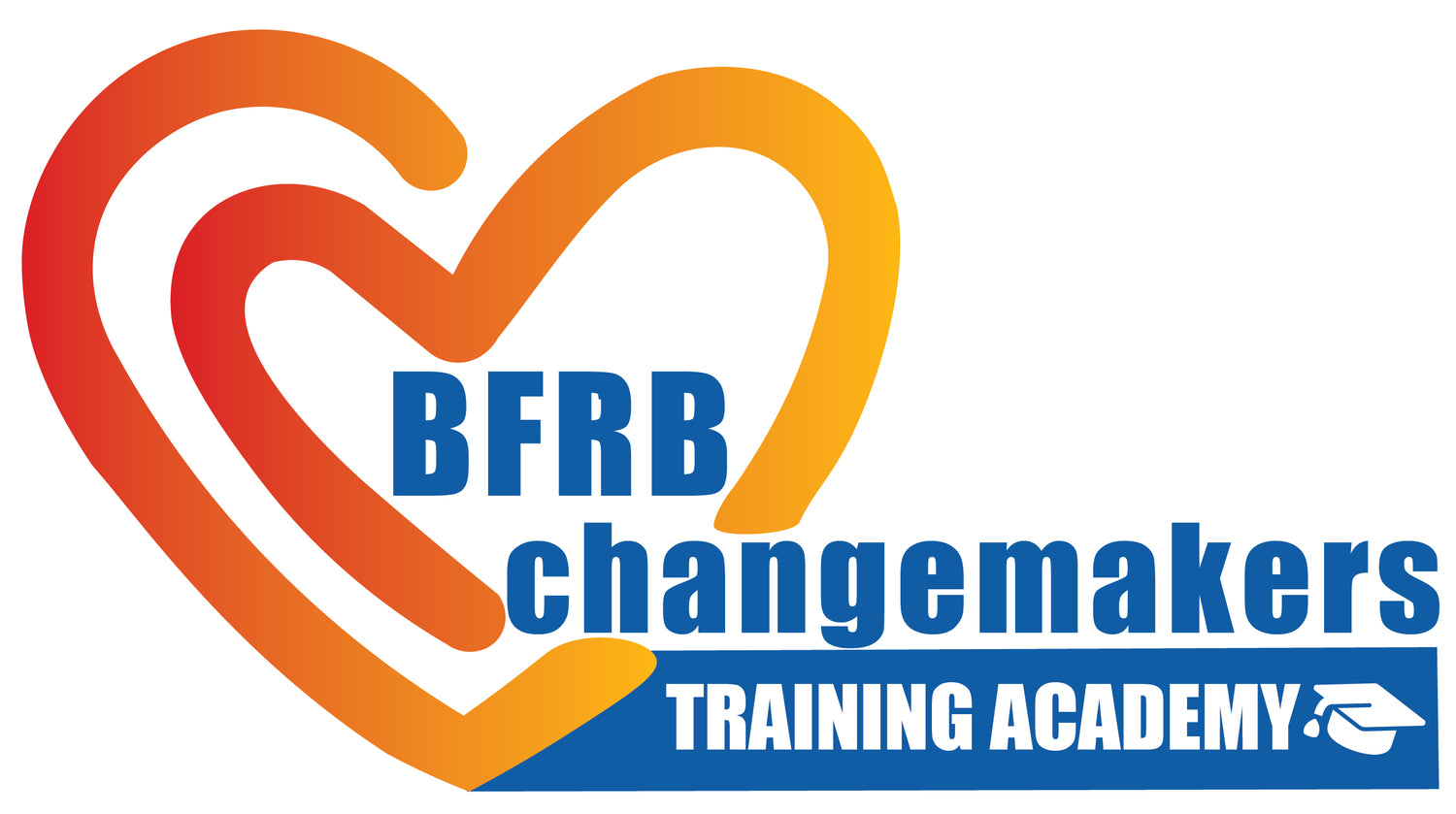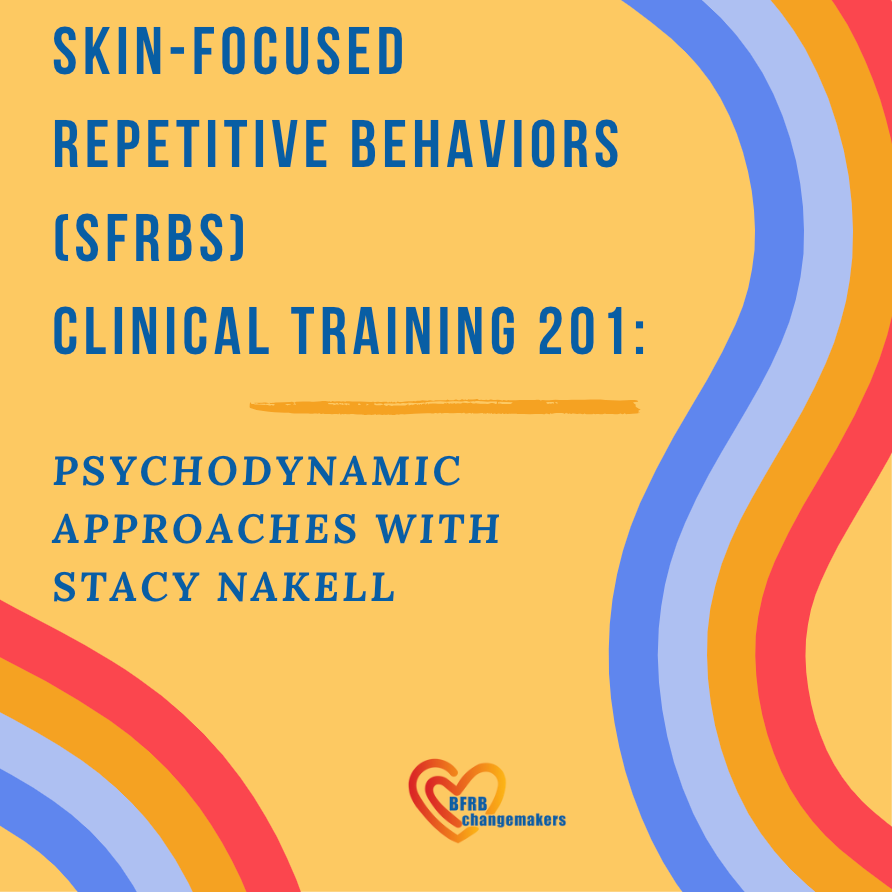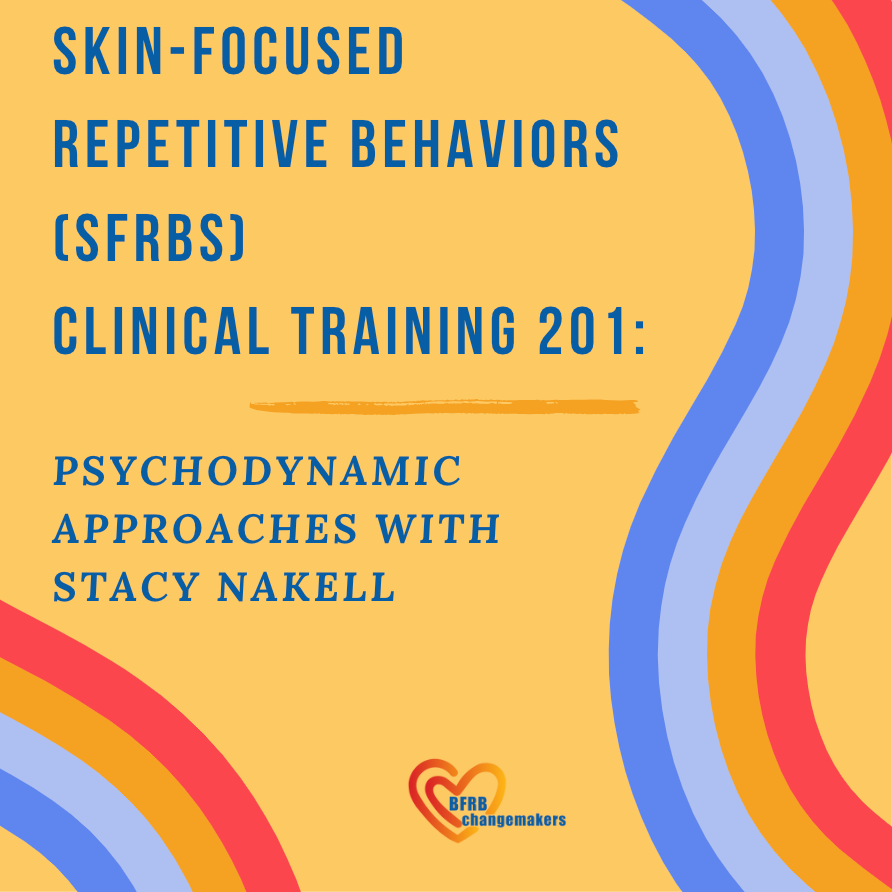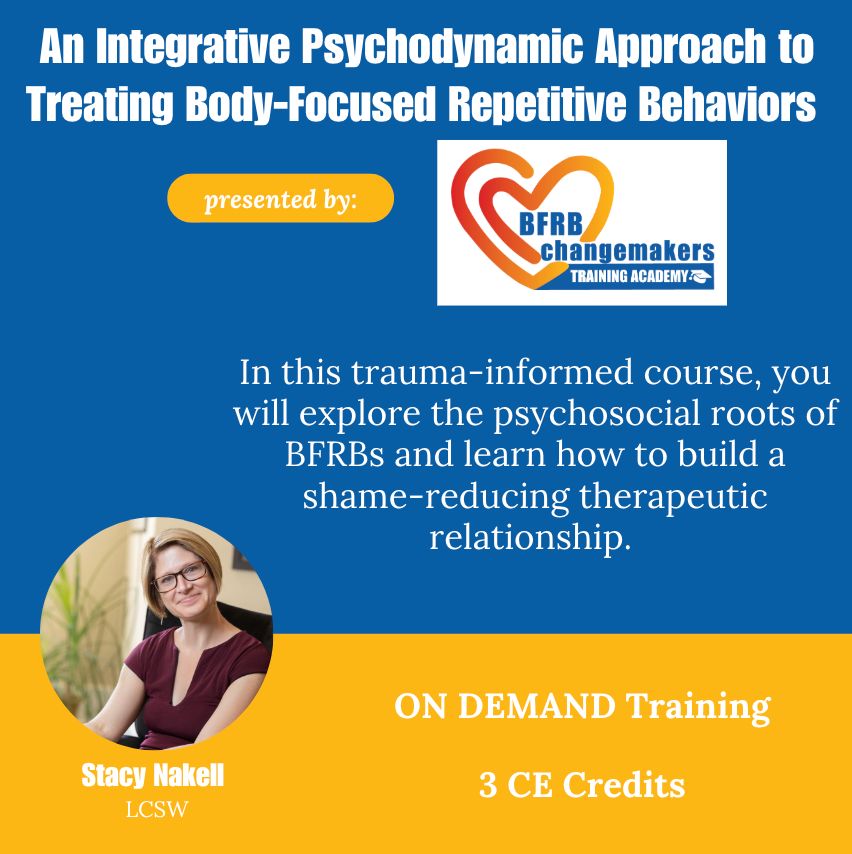
BFRB Changemakers strives to increase access to BFRB care by training new and seasoned mental health treatment professionals in the most up-to-date, evidence-based methodologies.
BFRB Changemakers CE Training Academy is your go-to resource to learn the latest in Body-Focused Repetitive Behaviors Treatment. These trainings help you treat patients with hair pulling (trichotillomania), skin picking (dermatillomania / excoriation) nail biting, lip biting, cheek biting, finger/feet picking and other BFRBs.
Upcoming Live Trainings

BFRB Changemakers
LIVE: Skin-Focused Repetitive Behaviors (SFRBs) Training 201: Advanced Psychodynamic Approaches - Jan 16, 2025
Share

On-Demand Trainings
-

Evidence-Based Treatment of Trichotillomania and Skin Picking with ACT-Enhanced Behavior Therapy
Enroll with Juniper Mental HealthInstructor: Dr. Mike Twohig
CE Credit Hours: 8.5
Includes: up to 4 free group consultation meetings (valid through April 2026)
This on-demand training includes six professionally produced modules teaching clinicians how to treat trichotillomania and skin picking using Acceptance and Commitment Therapy–Enhanced Behavior Therapy (A-EBT), an approach supported by more than 20 outcome studies worldwide and validated across in-person, telehealth, and web-based formats. Participants will learn how to diagnose trichotillomania, recognize common clinical presentations, and use standard psychological assessments, while gaining a deep understanding of Trigger Reduction, Habit Reversal, and ACT principles. The training also addresses common treatment challenges such as resistance, relapse, and fluctuating motivation, with practical strategies to support long-term recovery. Instruction is delivered through lectures, demonstrations, and recorded therapy sessions, including real-world examples from adults with skin picking and trichotillomania. -

An Integrative Psychodynamic Approach to Treating Body-Focused Repetitive Behaviors
Enroll in CourseInstructor: Stacy Nakell, LCSW
CE Credit Hours: 3
For decades, Body-Focused Repetitive Behaviors were treated almost exclusively with Cognitive Behavioral Therapy, which has led to mixed results, including persistent relapses. This workshop will introduce therapists to the theory and practice of an integrative psychodynamic approach. This model is grounded in attachment theory and prioritizes both the exploration of the psychosocial roots of these behaviors and importance of the therapeutic relationship in reducing shame and building new emotional regulation strategies. Integration of mind, body, spirit and skin in the therapy room allows for exploration of the four main triggers of picking and pulling: isolation, frustration, boredom, and feeling trapped, and can lead to sustainable behavioral change. -

Contemporary Practices in the Treatment of Body-Focused Repetitive Behaviors
Enroll with CEH - use code ChangeMakers for $5 OffInstructors: Drs. Marla Deibler and Renae Reinardy
CE Credit Hours: 10
Body-Focused Repetitive Behaviors (BFRBs) are repetitive self-grooming behaviors, such as trichotillomania (hair pulling) and excoriation disorder (skin picking), that fall within the scope of OCD and related disorders. Although BFRBs are common, affecting as many as 1 in 20 individuals, accessing accurate information and evidence-based treatment resources can be challenging. This workshop will provide up-to-date comprehensive evidence-based clinical training in the diagnosis,cross-cultural phenomenology, multifactorial self-reinforcing behavioral conceptualization, and current empirical review of the treatment of BFRBs. In-depth instruction will be provided in delivering integrative behavioral therapy (IBT) which entails a unified treatment protocol utilizing the full range of scientifically-supported psychological interventions to target under-addressed challenges of BFRBs and maximize/maintain treatment success.



